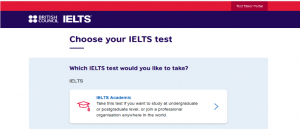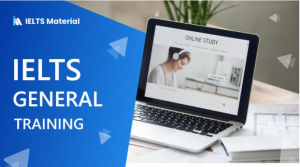The International English Language Testing System (IELTS) is a globally recognized English proficiency assessment widely taken by individuals who intend to study, work, or live in an English-speaking country. It evaluates candidates’ abilities in four key areas: reading, writing, listening, and speaking. The test is divided into two versions: the IELTS Academic for those seeking higher education and the IELTS General Training for those migrating or seeking work opportunities. Ensuring thorough preparation is crucial, involving regular practice and using available online resources for better understanding and familiarization with the exam format.
This article provides a comprehensive guide on various online resources available for IELTS preparation. It recommends Magoosh IELTS General Test Prep, a holistic resource covering all aspects of the IELTS general test and offering customizable study schedules. websites like ‘IELTS up’ and ‘IELTS-exam.net’ are suggested for IELTS reading practice.
What is the best way to prepare for the IELTS online?
The best way to prepare for IELTS online involves a mix of self-study and taking advantage of an expert tutor. Utilize online resources such as the British Council’s free online courses and IELTS Liz, a comprehensive website offering strategies and practice materials. Magoosh’s IELTS Prep app provides access to practice questions, video lessons, and progress tracking, while IELTS Buddy offers free online practice tests. It’s also beneficial to participate in online forums like IELTS Network to engage with other test-takers and tutors. Remember, consistency in preparation, regular practice, and feedback on your performance are crucial to achieving a high score in IELTS.
-
How can I get 7.5 IELTS in one month?
Achieving a 7.5 score in IELTS within a month requires a strategic approach, an organized study plan, and diligent practice. If you are a beginner at English, it is not possible to take IELTS 7.5 in one month and you have to practice more with an online IELTS English tutor. Start with understanding the test format and grading criteria. Use the IELTS free online resources that we will introduce in this article. Dedicate a specific time each day for each section – Listening, Reading, Writing, and Speaking.
How to Improve my IELTS Score at Home Easier and Faster?
Improving your IELTS score in a fast way requires dedication and practice. Different strategies can help you maximize your preparation time and get better results on test day. From familiarizing yourself with the exam structure to practicing mock tests, there are several ways to boost your confidence and improve your IELTS score quickly.
But the best way to improve your IELTS score quickly is to get help from an online IELTS tutor in online platforms such as: Ostado, Preply and Chegg tutors. Improving English skills quickly is a daunting task, but with IELTS tutoring, it can become an achievable goal.
What is the best resource for IELTS?
The best resource for IELTS preparation can significantly vary depending on one’s learning style and needs. One of the best resources for IELTS preparation is the Official Cambridge Guide to IELTS. This guide explains each test section and includes eight practice tests. Additionally, the British Council’s website is precious for online resources. It provides numerous practice tests, video tips, and vocabulary lists. As for tutoring, many have succeeded with the tutors from IELTS Advantage. They offer one-on-one coaching and personalized strategies to improve your scores. Always remember the effectiveness of a resource depends on how it aligns with your learning style.
The best websites for IELTS preparation:
There are several exceptional websites for IELTS preparation:
1. IELTS Official Website:
This should be your starting point for IELTS preparation. It offers a variety of free resources that are essential for success in the exam. IELTS Official Website (www.ielts.org) includes practice tests, expert tips, and valuable advice from those who created the exam.
2. British Council’s IELTS preparation portal:
Another valuable resource for IELTS preparation is the British Council’s (www.britishcouncil.org) comprehensive range of free resources. These resources cover every aspect of the exam, including practice tests, practical tips, and proven strategies. With the British Council’s support, you can develop the necessary skills and confidence to excel in the IELTS exam.

3. IELTS Liz:
IELTS Liz (www.ieltsliz.com) is highly recommended for additional guidance and valuable resources. This website offers a wealth of resources specifically designed to help you tackle each section of the test. With detailed strategies and practice materials, IELTS Liz equips you with the tools needed to achieve your desired score.
4. Magoosh’s IELTS prep app:
In today’s fast-paced world, studying on the go is essential. Magoosh’s IELTS (www.magoosh.com) app provides a convenient mobile-friendly resource for your IELTS preparation. With access to a wide range of practice questions, video lessons, and progress-tracking features, this app ensures that you can effectively study anytime, anywhere.
5. IELTS Buddy:
Enhancing your preparation further, IELTS Buddy (www.ieltsbuddy.com) offers free online practice tests that simulate the exam experience. By taking these tests, you can familiarize yourself with the format and timing of each section. Additionally, IELTS Buddy provides helpful tips and strategies to tackle each test section, giving you the confidence to perform at your best.
6. IELTS Network:
Finally, the IELTS Network (www.ieltsnetwork.com) is an invaluable online forum that connects you with other test-takers and experienced tutors. Here, you can discuss, seek feedback, share tips, and exchange experiences related to the IELTS exam. The collaborative nature of this platform fosters a supportive learning environment and provides a unique opportunity to learn from the collective knowledge of fellow test-takers and experts.
By utilizing these comprehensive resources, you can establish a strong foundation for your IELTS preparation and maximize your chances of achieving your desired score.
The best website for the IELTS mock test
For mock tests, IELTS Online Tests is a highly recommended website. It provides an extensive collection of free, full-length IELTS practice tests for all four sections – Listening, Reading, Writing, and Speaking. The tests are designed to simulate the actual exam experience closely, which helps in improving time management skills and understanding the actual exam pattern. Test-takers also receive an indicative score upon completion, which aids in identifying strengths and areas requiring improvement. Regular practice with mock tests is crucial to taking the IELTS exam.
-
Best websites for IELTS reading practice
For IELTS reading resources, ‘IELTS up’ and ‘IELTS-exam.net’ are highly recommended websites. Both these websites offer a wide range of free reading practice tests, categorized by difficulty level to suit individual needs. ‘IELTS up’ provides tests with answers and detailed explanations, helping test-takers understand and learn from their mistakes. ‘IELTS-exam.net'(www.ielts-exam.net) offers an extensive collection of reading practice tests, including those based on actual IELTS exams, which can help aspirants understand the exam format. Frequent practice using these resources can significantly improve reading skills and boost confidence before the exam.
-
Online resource for IELTS vocabulary
For IELTS vocabulary practice, ‘IELTS Vocabulary’ by IELTS Buddy is a trustworthy online resource. It offers a wealth of vocabulary lists, exercises, and explanations related to topics frequently encountered in the IELTS exam. The platform categorizes vocabulary according to the four test sections — listening, reading, writing, and speaking, enabling users to target their vocabulary acquisition strategically.
-
IELTS listening resources
The IELTS Listening section can only be challenging with the right resources for practice. A multitude of online platforms offer invaluable resources for honing listening skills. Websites such as the British Council, IELTS Liz, and IELTS Mentor provide a range of listening exercises that mimic the test environment. They offer recordings and questions to answer, followed by answer keys for self-assessment. Moreover, podcasts and English language radio stations also serve as excellent tools to get accustomed to various accents and speech rates. Lastly, the plethora of IELTS listening practice tests and applications available on the internet can significantly improve performance in this section of the exam.
Do you want to get ready for the IELTS exam? Click here to read: IELTS score, zero to hero! That is about the IELTS score which measures one’s ability to understand and communicate in English, the language of instruction for many universities worldwide. This means that having a good IELTS score can be essential for achieving success in higher education and beyond. Therefore, ensuring you get the best possible result when taking the IELTS exam is important. In this article, we will discuss the details of the IELTS test so that you know how to become an IELTS hero from zero.
Best online resource to prepare IELTS General
To prepare for the IELTS General exam, several online resources stand out for their comprehensive coverage, valuable practice materials, and efficient learning tools
· IELTS General.com:
IELTS material website is a comprehensive platform that offers a wide array of practice tests designed explicitly for the IELTS general training test. It provides ample opportunities for test-takers to familiarize themselves with the format and difficulty level of the exam. In addition to the practice tests, the website also offers valuable tips and strategies for each section of the test, helping candidates enhance their performance and boost their scores.

· General IELTS Practice Tests – IDP Education:
The IDP Education platform is an excellent choice if you are looking for a reliable resource to practice for the IELTS general training test. It provides free sample questions for all sections of the exam and simulates test conditions to give you a realistic exam experience. By practicing under similar conditions, you can develop the necessary skills and confidence to perform at your best on test day.
· IELTS Advantage:
If you find the writing and speaking sections of the IELTS general test challenging, IELTS Advantage website is designed to help you overcome those difficulties. It offers a range of free resources, including model answers, lessons, and feedback from IELTS examiners. By studying these resources, you can gain insights into the assessment criteria and learn practical strategies to excel in these sections, ultimately improving your overall score.
· IELTS Liz’s YouTube Channel:
For visual learners, IELTS Liz’s YouTube channel is an invaluable resource. She uploads informative videos that provide practical strategies for tackling each test section, including listening, reading, writing, and speaking. Moreover, she advises avoiding common mistakes, helping you refine your test-taking approach, and maximizing your score potential.
Remember, achieving a high score in the IELTS General exam requires more than just familiarity with the test format. It demands a thorough understanding of the exam’s content, consistent practice, and strategic preparation.
Looking for the best resources to prepare for IELTS? Check Cambridge IELTS resource bank
The Cambridge IELTS resource (www.cambridgeenglish.org/exams-and-tests/ielts/preparation) bank is a highly esteemed and comprehensive resource for those preparing for the IELTS exam. It offers a range of books, each containing four authentic IELTS examination papers from Cambridge Assessment English, providing excellent exam practice. The books have a comprehensive section of keys and transcripts, making them ideal for self-study. They also contain valuable practice for candidates to familiarize themselves with the content type found in the IELTS test.

-
British Council online IELTS resources
The British Council offers many online resources to help individuals prepare for their IELTS exam. Their ‘Road to IELTS’ program is a comprehensive online preparation course featuring interactive activities, mock tests, and feedback tools to enhance your test-taking capabilities. The website also provides downloadable materials such as practice tests and worksheets for every test section. Furthermore, candidates can find a helpful ‘IELTS Word Power’ app designed to improve their English vocabulary in a fun and engaging way.
In conclusion, preparing for the IELTS exam is challenging but manageable. With a wide variety of IELTS resources, you can find the best platform that suits your learning style. Resources like IELTS General.com, IDP Education, IELTS Advantage, IELTS Liz’s YouTube Channel, the Cambridge IELTS resource bank, and the British Council’s extensive IELTS exam resources provide a wide range of practice tests, preparation materials, tutorials, and expert advice.











